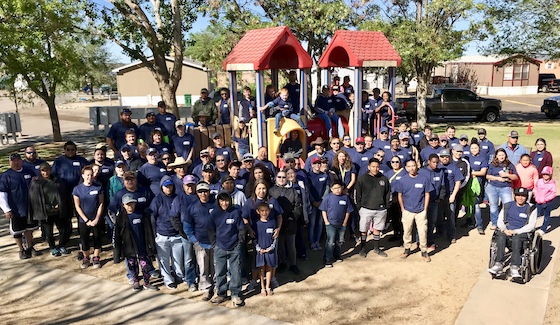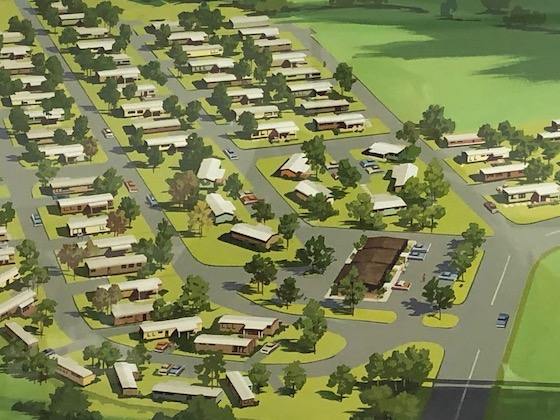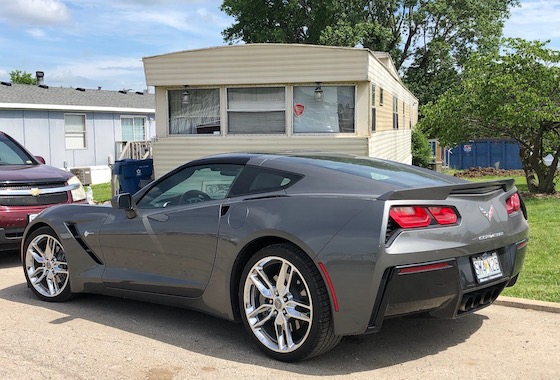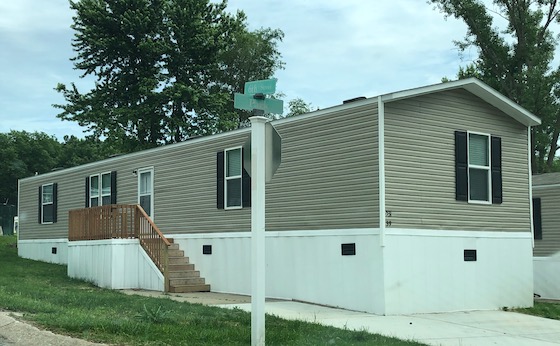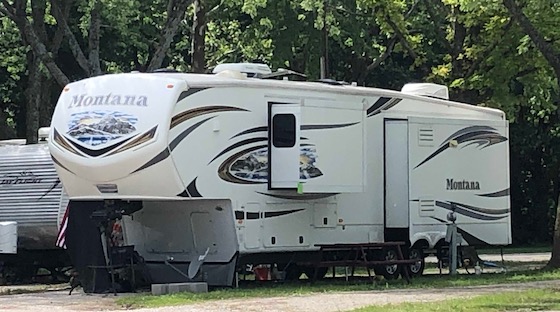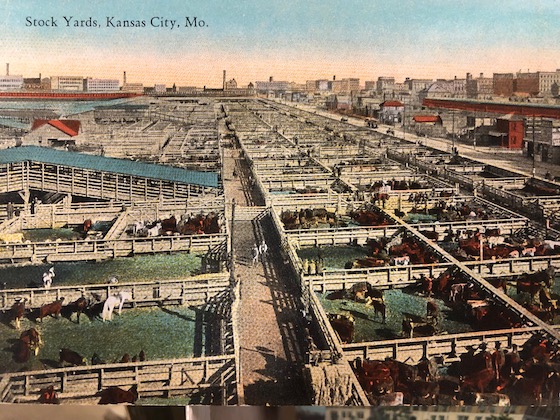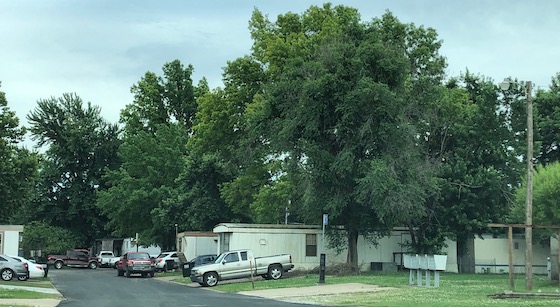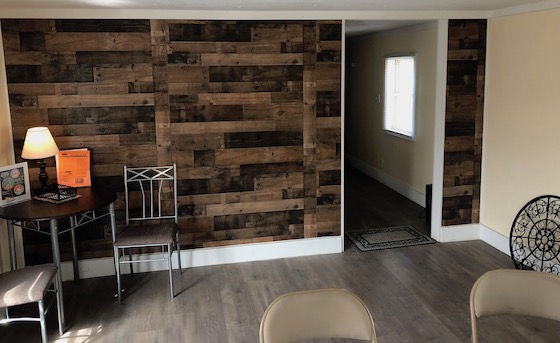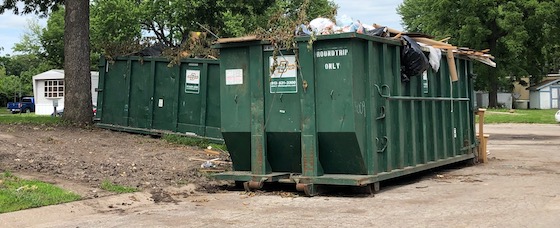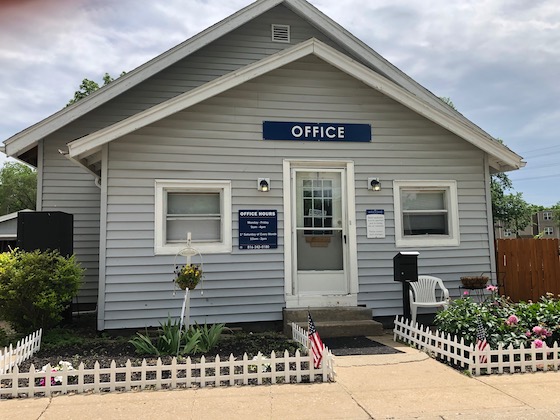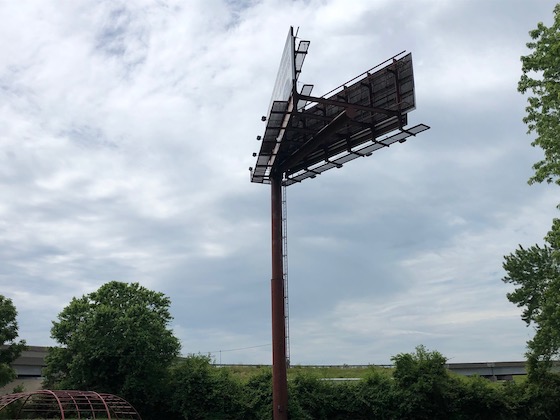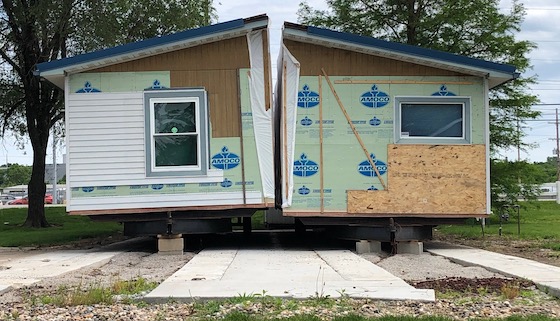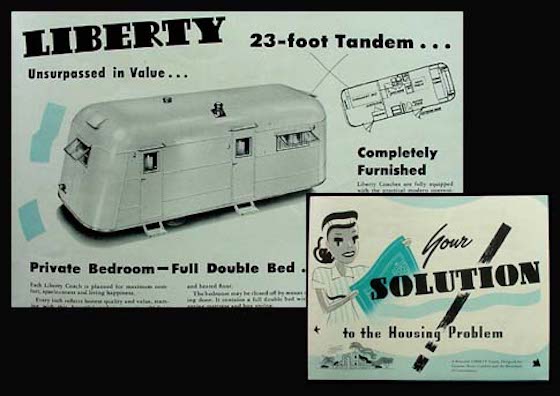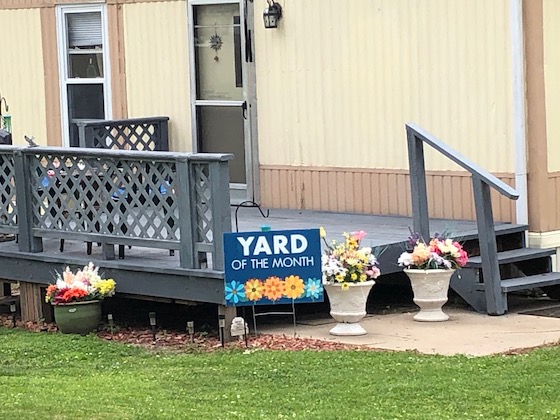An RV parked in a mobile home park is becoming common. It seems natural enough, as mobile homes and RVs started out life as the same product in the 1920s through 1950s. With 10,000 Baby Boomers retiring each day, and many downsizing their living quarters, some are choosing to live in RVs over mobile homes. But there are some issues with RVs that may or may not make them an acceptable addition to the mobile home park community.
Are RVs allowed and, if so, in what percentage?
If an RV wants to move into a mobile home park, the first question is “is that legal?” If you look up the city code, some places only allow mobile homes and ban RVs from being in mobile home parks. You can resolve this issue by calling city hall and inquiring as to whether or not RVs can be brought in to your park. The other thing to find out is if there is a ceiling on the number of RVs allowed. In some markets, the city may have a restriction of “no more than 20% of lots can contain RVs”. You certainly don’t want to run afoul of city hall on this issue.
Good news on utility demands
One nice thing about putting an RV on a mobile home lot is that you won’t even begin to dent the capability of utility delivery. RVs just don’t use much power or water/sewer. The normal RV connection is 50 amps while the normal mobile home requires 100 amps to 200 amps (the higher if the home is all-electric). In parks that do not submeter water and sewer back to the customer, this is a large savings and makes the RV resident actually one of the most profitable.
A blessing for small lots
A mobile home lot that cannot hold at least a 14’ x 48’ home (the smallest 2 bedroom/1 bathroom) is hard to successfully fill with a home that somebody wants to buy, but RVs can do the job successfully all day long. You can take lots that are too small for mobile home usage and they fit RVs perfectly, allowing the owner to find a productive, income-producing use for lots that otherwise would sit idle.
A wide variety of users
Most people think of RVs as a temporary form of travel for recreational purposes (hence the name “RV” which stands for “recreational vehicle”) but the truth is that there are actually two other main user groups for RVs. One, of course, is the retired household that has elected to retire and live permanently in their RV, often staying in one park for years or decades. With 10,000 Baby Boomers retiring each day in the U.S., this is a sector that is growing exponentially. The other RV user segment are contractors that live in one place but use their RV as a headquarters for their work in the city their job is in. For example, an electrician that lives in Baltimore but live in their RV located in Pittsburgh Monday through Friday wiring a factory, and then returns home on weekends.
Permanent RVs – how long is the stay?
Since what makes mobile home parks unusually attractive is the fact that mobile homes can’t really be moved (either because of age and roadworthiness concerns or the $5,000 price tag on the mover), the concern with RVs is that they have the potential to leave at the drop of a hat (or the turn of a car key). That being said, when a retired person puts down roots, their RV has as little potential of leaving as a mobile home does. We have some retirees that put in carports, landscape, and even skirt their RV. However, the contractor’s stay is a matter of a few months or years, and the true recreational user may stay in the lot for only a few days or weeks. So what’s really at issue is the intent of the RV owner in staying for a short or long time.
Why retire into an RV instead of a mobile home?
Since the average RV is less than half the square footage of the average mobile home, one might wonder why a household would elect to live in an RV over a mobile home. There are, in fact, many reasons. The first one is the simple fact that many of these customers already own an RV, and like staying in it. Another is that RVs often have better build quality, finish out and energy efficiency than mobile homes. But perhaps the biggest reason is simply that RVs don’t have the negative “stigma” that mobile homes do with the average American. RV ownership and usage is considered a luxury and consumer testing shows that the average American has a favorable impression of the product – in stark contrast to the “trailer park” image.
Impact on future appraisal or sale
It’s this temporary nature of RVs that makes them difficult for appraisers and bankers to put their arms around. If there are not that many RVs in the mobile home park, then the norm is for the appraiser and lender to count them the same as mobile home occupants. The feeling is that, even if one or two moved out, the hit to the revenue would not be that great and you could always refill the lot with another user. However, if the RV concentration is significant, it may result in the appraiser and lender counting that income at a higher cap rate to make sense of the transitory risk.
Unique marketing efforts required
It’s also important to note that the marketing required to attract RVs is completely different than that of mobile home customers. While mobile home buyers come from signage, newspaper ads and social media, RV users come from Google searches of “RV parks in _________” and websites, as well as flyers in tourism centers. If you want to bring in RVs you have to make a concerted effort to do so completely separate from your mobile home marketing campaign.
Conclusion
It’s a growing trend to see RVs in mobile home parks. It can work successfully, but you have to be aware of the ramifications of this usage. With 10,000 Baby Boomers retiring per day – and RV sales at the highest levels in U.S. history – this issue will only grow over time.

